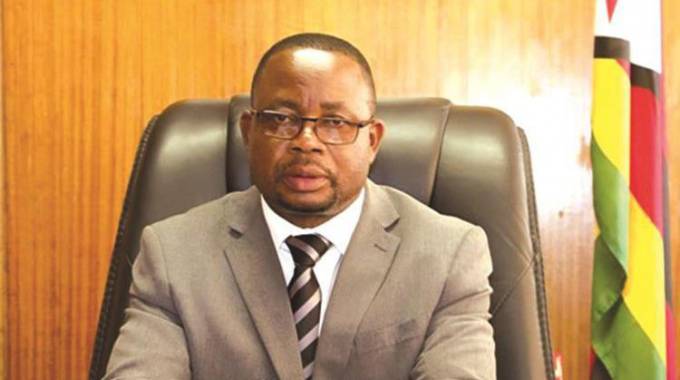
The Sunday Mail

Martin Kadzere
Government, business and labour will this week resume meetings under the umbrella of the Tripartite Negotiating Forum (TNF) to discuss key socio-economic issues expected to cushion the country from current headwinds, The Sunday Mail Business has established.
The forum was initially established in 1998 as a voluntary platform but it was later legislated through the Tripartite Negotiating Forum Act of 2019.
While various sub-committees have been meeting over the past two years, the main wing last met in April 2020.
The meeting ended prematurely when labour walked out in protest over the minimum wage.
Labour had proposed the minimum wage be negotiated at national level, while Government and business wanted sector-based negotiations.
“We are going to have a taskforce meeting in Mutare this Tuesday before we convene a full TNF in two weeks,” said Public Service, Labour and Social Welfare Minister Paul Mavima, who chairs the TNF.
“We work through various committees, each dealing with specific issues which they bring to the agenda of TNF.”
The contentious issue of pricing of goods and services is likely to be topical during deliberations.
Some retailers started exclusively charging in foreign currency after Government last month passed a law that guarantees the use of foreign currency in local transactions until 2025.
Despite incentives such as duty-free certificates extended to manufacturers to ease importation of raw materials, some still insist on US dollar payments for their products.
Focus has also been on companies using parallel market rates to price goods and services, including those that have been accessing resources from the foreign currency auction.
There have, however, been concerns supplies from the auction are limited.
On the other hand, labour, which feels stretched by shrinking disposable incomes, is demanding inflation-indexed salaries or remuneration in foreign currency.
Month-on-month inflation for June rose to 30,7 percent from 21 percent a month earlier. Since dollarisation in 2009, the highest ever month-on-month inflation was 35,5 percent in July 2020, where annual inflation also peaked at 837,5 percent.
Resurgent inflation is being driven by adverse expectations, exchange rate developments, global price increases and supply chain disruptions caused by the Russia-Ukraine conflict and Covid-19.
Workers have been pushing Government to increase non-taxable thresholds to cushion them from inflation.
Zimbabwe Congress of Trade Union (ZCTU) secretary-general Mr Japhet Moyo told The Sunday Mail Business that labour organisations were looking forward to all parties being able to “find each other” in trying to solve the current socio-economic challenges.
“The Government (which chairs the forum) officially wrote to us proposing that we constitute a taskforce to negotiate a social contract which then feeds into the main TNF,” said Mr Moyo.
“We are happy with the move. Our major concern is on the pricing of goods, low wages and incidences of dismissals of workers’ representatives.”
Given the current challenges facing the economy, he added, it was critical that parties to the TNF meet to try and find the solutions to current challenges.
Employers’ Confederation of Zimbabwe (EMCOZ) president Mr Demos Mbauya said the operating environment was becoming increasingly challenging.
“There is consensus within TNF that we need to convene and dialogue to come up with a social contract specifically to address the issue of economic stability. To that end, the economic cluster of the TNF will be meeting next week (this week) to start work on the social contract.”
He said business had drawn experts from the Confederation of Zimbabwe Industries, the Zimbabwe National Chamber of Commerce, Bankers Association of Zimbabwe, Chamber of Mines, and Confederation of Zimbabwe Retailers to participate in the economic cluster meeting that will be held in Mutare next week.
“We need to give dialogue and consensus-building around major economic policy interventions a chance,” added Mr Mbauya.
“As business we are committed to play our part.”
Economist Mr Persistence Gwanyanya said the best way was to negotiate and agree on a way forward.
“Considering the circumstances that we are in, there is really need for negotiations,” said Mr Gwanyanya.
“But what is important is to agree, and by agreeing, parties need to compromise where there is need.”



